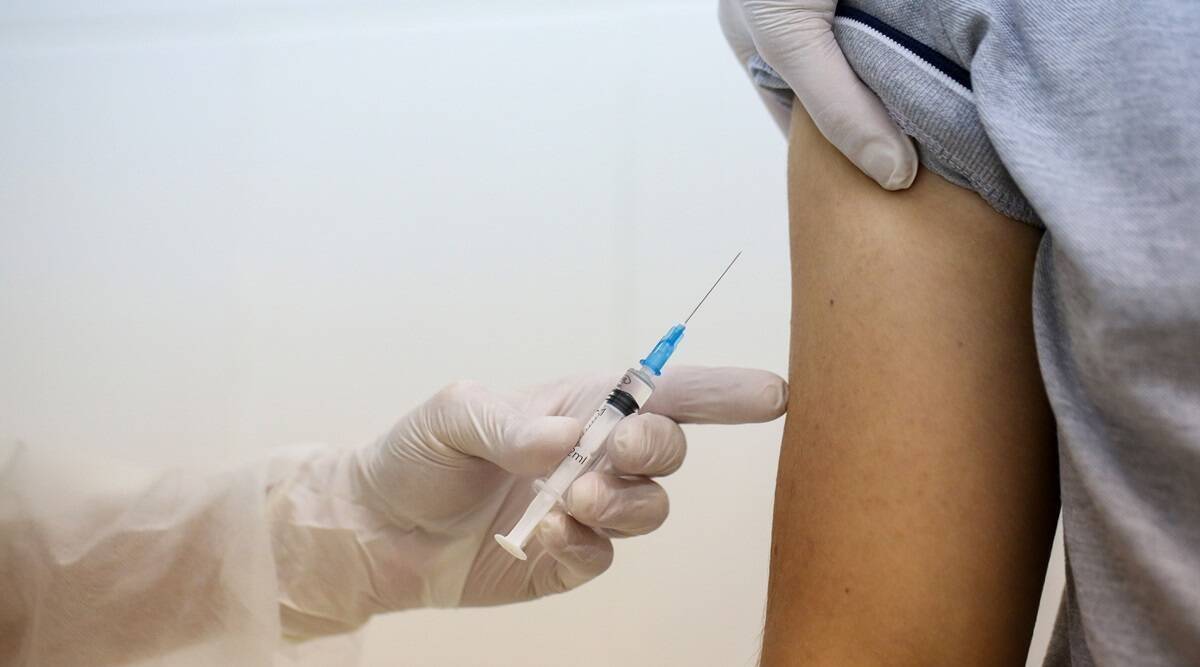
A limited supply of Covid-19 vaccines has led to a slow rollout, and many across the country have been unable to book a slot. How long can you afford to wait for the first or second dose, and how does that change if you are infected with Covid-19 during the wait?
What is the vaccination regimen followed in India?
Over 17.7 crore people have been vaccinated with either Covishield (AstraZeneca’s vaccine manufactured by Serum Institute of India) or
Covaxin
(manufactured by Bharat Biotech Limited), out of whom over 3.9 crore have got the second dose.
As per the initial permission granted by the Drug Controller General of India (DGCI), the second dose of Covishield was to be administered 4-6 weeks after the first, and the second dose of Covaxin 28 days after the first. The interval was subsequently extended to 4-8 weeks for Covishield, and to 4-6 weeks for Covaxin. In April, the Centre advised that the second Covishield dose could be taken 6-8 weeks after the first.
If you have not been vaccinated at all, and you get infected and recover, when should you get the shot?
The US Centers for Disease Control and Prevention (CDC) suggests a wait for 90 days from the day one tests positive for Covid-19 if he/she has not received the vaccine.
Immunologist Dr Vineeta Bal from the Indian Institute of Science Education and Research (IISER) said infection-triggered immunity is likely to last for a few months, and it would be advisable to wait for 6-8 weeks after recovery. Leading vaccine scientist Dr Gagandeep Kang said data from the UK shows there is 80% protection following a natural infection with the SARS-CoV-2 virus. It is fine to even wait up to six months, she said. This is in line with the recommendations of the World Health Organization (WHO) which reviewed data and said it was all right to delay vaccination for six months after a natural infection, as natural antibodies are likely to persist in the body until then.
If you are infected after you have taken your first dose, how does it impact your schedule for the second shot?
The second dose can be given eight weeks after the person tests positive for coronavirus infection, according to Dr V Ravi, nodal officer for genetic confirmation of SARS-CoV2, Karnataka, and retired professor of neurovirology at the National Institute of Mental Health and Neurosciences (NIMHANS). The body starts producing antibodies after the infection and it is akin to getting a vaccine. However it is advisable to wait for at least eight weeks before taking the second dose, experts recommend.
For several people, the disease could be mild or moderate if he/she catches the infection between two doses. It would depend on when the exposure took place. The vaccine would be unlikely to have an effect if exposure takes place within one to three weeks of receiving the first dose. The course of the infection would continue but it is most likely that the person may suffer a milder form of disease if he/she is Covid-positive three weeks after getting the first vaccine shot.
Scientists are still learning about natural and vaccine-induced immunity. According to the CDC, it typically takes two weeks for the body to build protection after vaccination, and hence it is possible to get infected.
If you have never been infected, have taken the first dose, and remain uninfected, but are unable to take the second dose due to unavailability, should you worry?
There is no need to panic if the second dose is delayed, but do not defer it indefinitely, said Dr Shashank Joshi, member of the Maharashtra Covid-19 task force. For Covaxin, the gap can be extended up to 45 days from the first shot. For Covishield, the second dose can be taken three months after the first shot, he said.
These are early-generation vaccines and studies are underway. The Lancet recently published a study that showed Covishield has 81.3% efficacy if the two doses are administered 12 weeks apart, but only 55.1% when they are administered less than 6 weeks apart. Prof Ravi said the fundamental principle is that the longer the gap between the doses, the better it is. ‘But why we say do not keep a longer gap is, during this period one can get the infection. Also, there perhaps can be a tendency to forget to take the second dose,’ he said.
According to Dr Kang, inactivated vaccines (such as Covaxin) usually offer minor protection with one dose, so people need two doses that give 80% protection. A few weeks here and there will not make much of a difference, but ‘take the second dose’, she said. She assured there is no reason for repeating the cycle. The DGCI recently permitted Bharat Biotech to give a third dose of Covaxin to some volunteers in clinical trials.
If you have taken Covaxin as your first dose but find it is not available for the second, can you take Covishield instead?
Since all vaccine development efforts were carried out independently, there is no data to make a statement about whether two different vaccines can be used for two doses, Dr Bal said. The problems of coordination, in fact, will worsen with more vaccines becoming available. ‘Essentially, it is an administrative problem and not an academic/scientific one,’ Dr Bal said.
According to the CDC, Covid-19 vaccines are not interchangeable. The Pfizer-BioNTech and Moderna vaccines used in the US are mRNA vaccines. ‘In situations where the same mRNA vaccine product is temporarily unavailable, it is preferable to delay the second dose (up to six weeks) to receive the same product than to receive a mixed series using a different product,’ the CDC has said.
